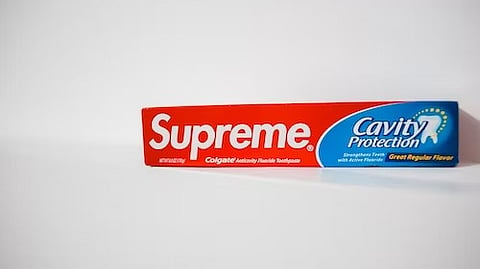the Brushing with toothpaste keeps your teeth clean and healthy, prevents cavities and gum disease, and keeps your mouth clean. However, the American Dental Association recommends that any toothpaste you buy bear the ADA Seal of Acceptance and contains fluoride.
This naturally occurring mineral helps to prevent cavities by making the enamel or outer surface of your teeth more resistant to acid attacks that cause tooth decay. "Studies also show that fluoride remineralizes tooth enamel during the early stages of cavity formation," according to the researchers.
A dentist can examine teeth and recommend which toothpaste to use to make them healthier. For example, "If your teeth are prone to high caries risk, that is, getting cavities, then fluoride content toothpaste may be recommended."
Toothpaste comes in various forms, such as gel, creamy paste, or powder, and may contain similar or different ingredients, while all toothpastes differ slightly.


